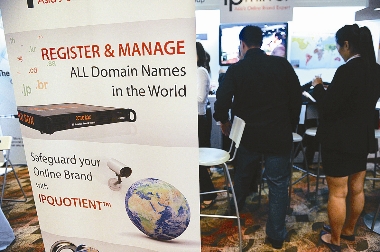
互联网域名后缀今后随你选 A quarter century after the creation of “.com,” the agency that assigns Internet addresses is loosening its rules and allowing suffixes* named after brands, hobbies*, political causes and just about anything else. Under guidelines approved Monday, Apple could register* addresses ending in “.ipad,” Citi and Chase could share “.bank” and environmental groups could go after “.eco.” Japan could have “.com” in Japanese. It’s the biggest change to the system of Internet addresses since it was created in 1984. More than 300 suffixes are available today, but only a handful*, such as the familiar “.net” and “.com,” are open for general use worldwide. Hundreds of new suffixes could be set up by late next year, thousands in years to come. “This is the start of a whole new phase for the Internet,” said Peter Dengate Thrush, chairman of the Internet Corporation for Assigned Names and Numbers (ICANN), the California nonprofit* organization in charge of Internet addresses. The novelty addresses will be costly — US$185,000 to apply and US$25,000 a year to maintain one. A personal address with a common suffix such as “.com” usually costs less than US$10 a year. ICANN says it costs tens of millions of dollars to write the guidelines for suffixes, review applications and resolve any disputes. Even with the high fees, the organization says it plans only to break even. It’s also setting aside up to US$2 million to help applications from developing countries. The expansion plan, which runs about 350 pages, took six years to develop. Internet addresses, technically known as domain names, tell computers where to find a Web site or send an e-mail. Without them, people would have to remember strings of numbers such as “165.1.59.220” instead of “ap.org.” ICANN will start taking applications for new suffixes Jan. 12. Approval of individual applications is expected to be quick if there are no challenges for trademark, morality* or other reasons. (SD-Agencies) | 
